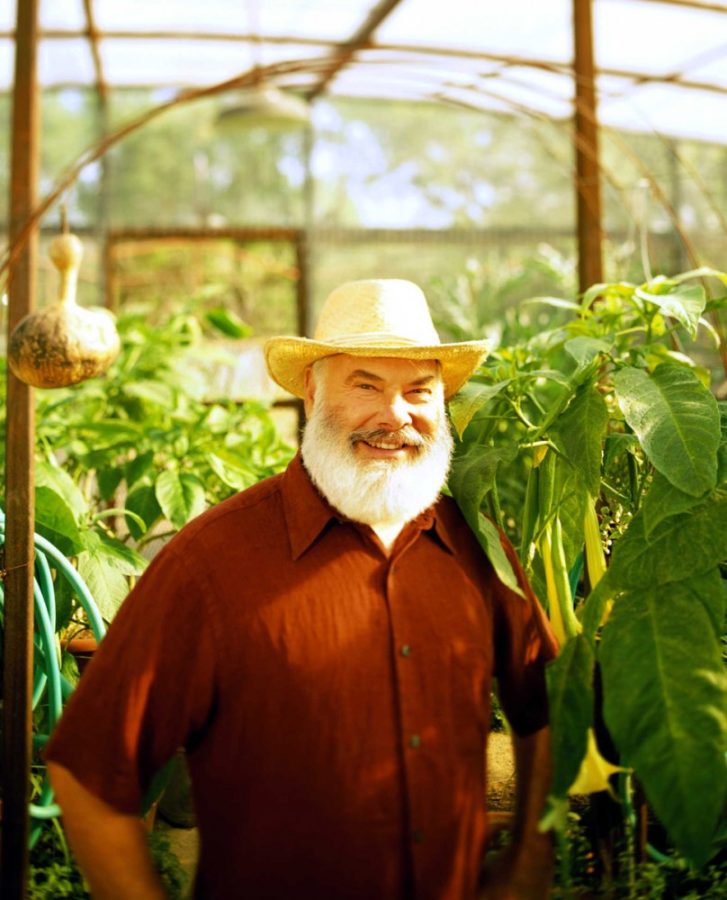Dr. Andrew Weil, world-renowned integrative physician, health guru and founder of the Arizona Center for Integrative Medicine at the UA College of Medicine-Tucson, has quite an impressive track record.
Weil was on the cover of Time Magazine in 1997 and 2005, and was also voted one of Time Magazine’s 100 most influential people in 2005.
Weil, a Harvard Medical School alumnus, is a pioneer in the world of alternative medicine. He created his own food pyramid, the Anti-Inflammatory Food Pyramid, which is the foundation for a revolutionary diet designed to implement foods scientifically shown to reduce inflammation in the body into one’s diet.
“I had been following medical research from time that had suggested chronic, inappropriate inflammation is the root cause of a number of very serious disease including cancer, cardiovascular disease and neurodegenerative disease,” Weil said. “Anything you can do to contain inflammation is your best shot at optimum health and longevity.”
Weil decided to create his anti-inflammatory diet because he said he was not pleased with the quality of the mainstream American diet.
“The mainstream diet is strongly pro-inflammatory,” Weil said. “We get the wrong kind of carbohydrates, the wrong kind of fats and not enough of the protective elements that are mostly in fruits, vegetables, herbs and spices.”
When looking for an inspiration for his diet, Weil turned to the Mediterranean diet, which emphasizes consumption of plant-based foods, fish and olive oil.
“I used the Mediterranean diet as a template because we have a great deal of scientific evidence of its health benefits,” Weil said.
According to Weil, he tweaked the Mediterranean diet by adding Asian and Japanese influences.
So, how can students incorporate Weil’s anti-inflammatory diet into their own diets to lead a healthier lifestyle?
One of the biggest steps college students can take to take control of their health is to speak up regarding the lack of healthy dining options on campus, according to Weil.
When faced with the limited dining selections on campus, Weil had some advice on how to eat healthy.
“I would strongly recommend sticking to broiled meat such as fish or chicken, along with a salad with an oil and vinegar dressing,” Weil said. “I would also avoid deep fried foods, sweetened beverages and try to find restaurants with smoothie options.”
Weil’s anti-inflammatory diet recommends three to five servings of grains per day; however, they must come from whole and cracked grains such as quinoa, brown rice or steel-cut oats. As a result, students are advised to stay away from many of the refined grains found in on-campus menu items.
In addition, Weil recommends students carry around snacks such as nuts, dark chocolate—at least 70 percent cocoa—and crystallized ginger to keep themselves satiated. Ginger, a powerful anti-inflammatory, has been scientifically proven to reduce muscle pain and soreness after exercise. Dark chocolate, on the other hand, has been shown to reduce blood pressure, improve insulin sensitivity and protect the skin from sun damage.
For students who like to cook, Weil said it is essential that students incorporate powerful spices such as garlic, ginger and turmeric into their spice cabinets. Turmeric has been shown to possess strong anti-inflammatory properties.
In 2006, Dr. Randy Horwitz, of the AZCIM, found a significant reduction in symptoms upon administering turmeric to rats who had rheumatoid arthritis. RA is a disease involving chronic joint inflammation.
Read the Daily Wildcat’s story on UA researchers studying turmeric’s anti-inflammatory properties.
To introduce students to his anti-inflammatory diet, Weil shared a healthy recipe from his latest book, “Fast Food, Good Food.” His recipe for roasted cauliflower can be found in the accompanying sidebar.
Check out Weil’s website for more.
Follow Akshay Syal on Twitter.








